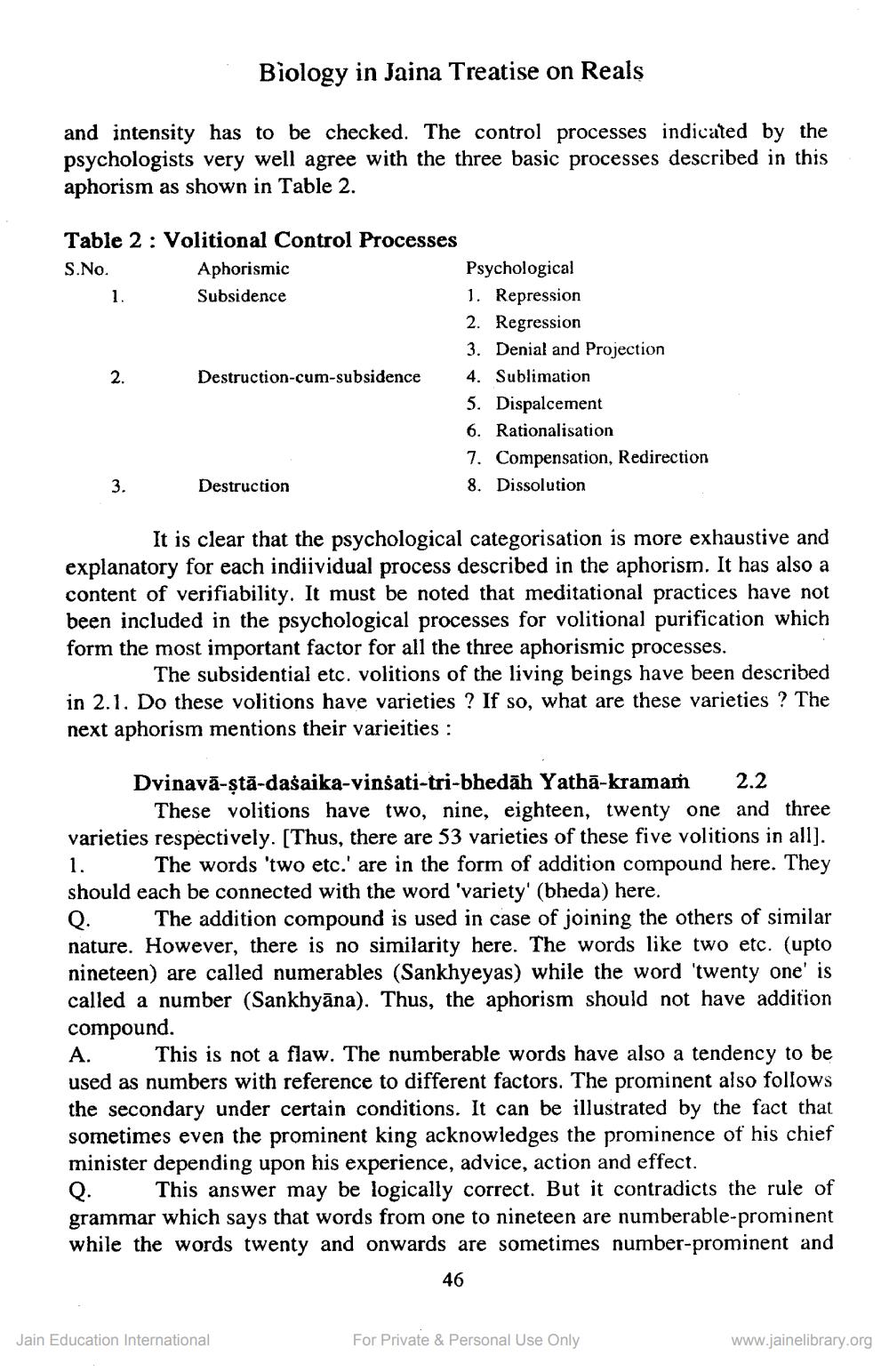________________
Biology in Jaina Treatise on Reals
and intensity has to be checked. The control processes indicated by the psychologists very well agree with the three basic processes described in this aphorism as shown in Table 2.
Table 2: Volitional Control Processes S.No. Aphorismic
Psychological Subsidence
1. Repression 2. Regression
3. Denial and Projection Destruction-cum-subsidence 4. Sublimation
5. Dispalcement 6. Rationalisation
7. Compensation, Redirection Destruction
8. Dissolution
It is clear that the psychological categorisation is more exhaustive and explanatory for each indiividual process described in the aphorism. It has also a content of verifiability. It must be noted that meditational practices have not been included in the psychological processes for volitional purification which form the most important factor for all the three aphorismic processes.
The subsidential etc. volitions of the living beings have been described in 2.1. Do these volitions have varieties ? If so, what are these varieties ? The next aphorism mentions their varieities :
Dvinavā-stā-dasaika-vinsati-tri-bhedāh Yathā-kramam 2.2
These volitions have two, nine, eighteen, twenty one and three varieties respectively. [Thus, there are 53 varieties of these five volitions in all]. 1. The words 'two etc.' are in the form of addition compound here. They should each be connected with the word 'variety' (bheda) here. Q. The addition compound is used in case of joining the others of similar nature. However, there is no similarity here. The words like two etc. (upto nineteen) are called numerables (Sankhyeyas) while the word 'twenty one' is called a number (Sankhyāna). Thus, the aphorism should not have addition compound A. This is not a flaw. The numberable words have also a tendency to be used as numbers with reference to different factors. The prominent also follows the secondary under certain conditions. It can be illustrated by the fact that sometimes even the prominent king acknowledges the prominence of his chief minister depending upon his experience, advice, action and effect. Q. This answer may be logically correct. But it contradicts the rule of grammar which says that words from one to nineteen are numberable-prominent while the words twenty and onwards are sometimes number-prominent and
46
Jain Education International
For Private & Personal Use Only
www.jainelibrary.org




